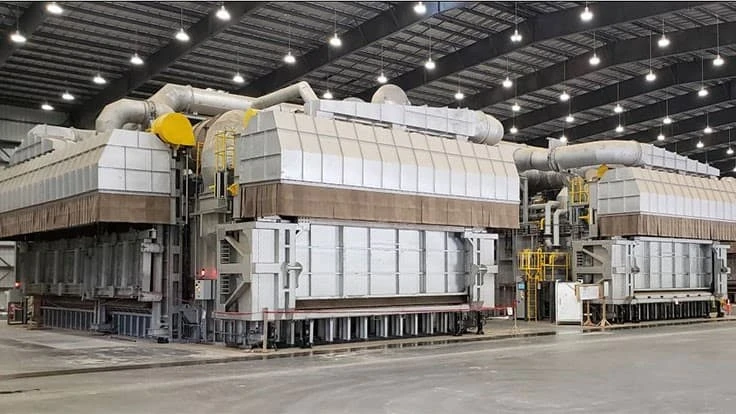
JW Aluminum
Aluminum industry executive Lee McCarter predicts that U.S. companies will onshore and further diversify their supply chains as a result of the COVID-19 pandemic. He adds that the process will take time. “It didn’t go offshore overnight, and it won’t come onshore overnight.”
Despite the business disruption caused by the COVID-19 pandemic, McCarter, who is CEO of South Carolina-based JW Aluminum, says the company has seen a consistent flow of scrap into its Goose Creek, South Carolina, mill.
JW Aluminum manufactures flat-rolled aluminum products, including sheet products for the building and construction markets, fin stock used by the heating and air-conditioning industry, light-gauge converter foil for the flexible packaging industry, honeycomb foil for the aerospace industry and other sheet and foil products.
“We are getting what we need when we need it,” he says as of early May. However, McCarter acknowledges that dislocation is affecting the supply chain because retail and industrial generation are down. He adds that it is a situation JW Aluminum is monitoring.
“In the second half of the year, we hope to replenish certain areas of scrap that have been constrained,” he says.
Most of the company’s scrap comes from within a 350-mile radius of its Goose Creek plant. “It could be broadened if we need to,” McCarter says.
JW Aluminum produces 3105 aluminum at its South Carolina mill. The aluminum scrap grades JW commonly consumes include painted siding, mixed low-copper clips (MLC), 3004, 3003 and 1100 alloys.
The company’s new melting technology from Mechatherm allows JW Aluminum to use a wider range of its traditional scrap grades as well as used beverage cans (UBCs).
While McCarter says JW Aluminum has not yet seen reduced demand for its products, he adds, “It is realistic to assume it will impact us someway or somehow.”
Commercial construction has been affected by the pandemic, with 10 out of 11 private nonresidential construction categories in the Census Bureau’s monthly construction spending release declining from February to March, when COVID-19 began spreading in the United States, according to Ken Simonson, chief economist of the Associated General Contractors of America.
Despite this overall decline, McCarter says the company’s customers have seen minimal disruption to their operations, with the exception of aerospace.
“Home building has hummed along during this process,” he says. “As you see the population impacted by this, it should have an impact on demand as you go into the future.”
McCarter says he believes the ramp-up in manufacturing in health care, pharmaceuticals and personal protective equipment sectors will benefit the aluminum industry overall.
While improved profitability led companies to offshore parts of their supply chains, McCarter says he believes manufacturers will broaden their supply chains rather than concentrate them in a single country, such as China, because of the pandemic. He says manufacturers will take a longer term view, adopting a more balanced approach to their supply chains that ensures continuity of supply rather than solely focusing on profitability.
He says JW Aluminum has been fielding calls from companies that are interested in diversifying their supply chains so they are not as reliant on offshore suppliers. McCarter says JW Aluminum has been quoting for 2021 volumes.
Latest from Recycling Today
- BMW Group, Encory launch 'direct recycling’ of batteries
- Loom Carbon, RTI International partner to scale textile recycling technology
- Goodwill Industries of West Michigan, American Glass Mosaics partner to divert glass from landfill
- CARI forms federal advocacy partnership
- Monthly packaging papers shipments down in November
- STEEL Act aims to enhance trade enforcement to prevent dumping of steel in the US
- San Francisco schools introduce compostable lunch trays
- Aduro graduates from Shell GameChanger program





